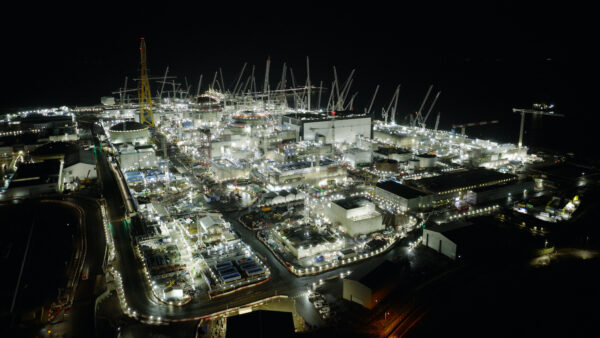
Investing in net zero today will be cheaper than delaying and will increase economic as well as climate benefits, claims the government’s net zero tsar.
The Liz Truss government appointed former energy minister Chris Skidmore to lead a review into how to decarbonise the UK economy.
He has made 129 recommendations in his Net Zero Review, Mission Zero. These include establishing an Office for Net Zero Delivery at the heart of government to drive change across all departments.
Other ideas include shaking up the planning system so net zero is central to local, as well as national, policy. This would include supporting at least one Trailblazer Net Zero City, local authority and community, to work towards reaching net zero by 2030.
Also proposed are incentivising investment in decarbonisation via mechanisms such as tax breaks, and developing a strategy to decarbonise construction and other machinery.
Under the Future Homes Standard the review also wants to see gas boilers banned in new homes built after 2025 and heat pumps made mainstream within a decade.
Skidmore also calls for development of a cross-sector government infrastructure strategy by 2025 to rapidly build and adapt for electricity, hydrogen, other liquid and gaseous fuels, and CO2 networks.
He argues: “The scale of this challenge, and the breadth, is too much to be left to the whims of individual projects.”
‘Inconsistent’ policy commitments
However, Skidmore also warns there are “weaknesses” in the UK’s investment in net zero, including “inconsistent” policy commitments, skills shortages, and delay. He says businesses tell him this has resulted in net-zero opportunities being missed.
These missed opportunities will cost the UK economy. Analysis suggests that delaying action by just 10 years could see UK debt 23% of GDP higher in 2050. This would double the fiscal cost of achieving net zero and lose out on economies of scale.
The review also points to Oxford research that finds a fast net-zero transition by scaling up green technologies and switching to decarbonised energy by 2050 would save the world at least $12trn, compared to continuing with fossil fuel.
Chair of the Grantham Research Institute on Climate Change at the London School of Economics and Political Science, Professor Lord Stern of Brentford, said: “The review has argued convincingly that the transition to a net-zero economy is the growth opportunity of the 21st century. The UK [can] benefit from the increasing demand for net-zero goods and services, if it makes the right public and private investments.
“It also correctly highlights the critical importance of government creating an environment that is conducive to this investment by providing clarity, certainty, consistency and continuity of policy.”
The report backed nuclear as one of the fossil fuel alternatives, saying it is a “no-regrets option” as it provided a reliable baseload power independent of the weather, that did not require large areas of land. The Government has already set an ambition for nuclear to comprise up to a quarter of power consumed in the UK.










